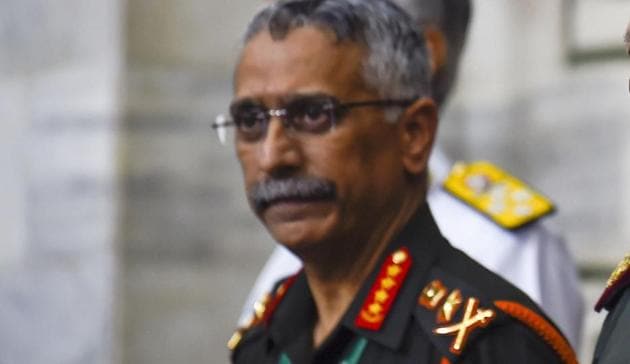‘Escalation may not always lead to war,’ says Army chief Naravane
Army chief, General Manoj Mukund Naravane, on Wednesday said India’s unprecedented air strikes against a terror base in Balakot, Pakistan, on February 26 last year dispelled the long-held belief that the use of air power across the border could trigger a full-blown war between the two nuclear-armed neighbours
Army chief, General Manoj Mukund Naravane, on Wednesday said India’s unprecedented air strikes against a terror base in Balakot, Pakistan, on February 26 last year dispelled the long-held belief that the use of air power across the border could trigger a full-blown war between the two nuclear-armed neighbours.

“For years we were told that if air power is used across the international border, it would escalate to a full-fledged war. Balakot demonstrated if you play the escalatory game with skill, military ascendancy can be established in short cycles of conflict that do not necessarily lead to war,” Naravane said at a seminar organised by the army and think tank, Centre for Land Warfare Studies.
His comments come days after Indian Air Force chief, Air Chief Marshal RKS Bhadauria, asserted that the Balakot air strikes showed there was scope for taking out targets in Pakistan below the threshold of conventional war.
Speaking at the seminar, titled, ‘Changing Characteristics of Land Warfare and its Impact on the Military’, the army chief touched on the concept of “grey zone warfare”, or employing aggression and other actions to achieve national objectives below the threshold of armed conflict, and the ambiguity it creates.
“If the target country does too little, it faces the prospect of a series of small but cumulatively significant defeats. If it does too much, it risks being held responsible for reckless escalation,” Naravane said.
He cited China’s example of how Beijing had altered geo-strategic realities and strengthened its position in the South China Sea “without a shot being fired”. Moves in the “grey zone” are ambiguous that leave target countries unsure as to how to respond, he said.
Naravane said “the grey zone and its varied nuances” in the Indian context had not skipped the army’s attention. “Apart from strengthening our conventional prowess, we are also focusing on dynamic response [actions below the threshold of an all-out war] and are refining our plans and capacities in this regard both along the Line of Control and the Line of Actual Control [with Pakistan and China],” the army chief said. He said combat was no longer confined to the physical domain and strategic-military competition was playing out in the technological battle space like never before.
“Technological leadership need not always be demonstrated through live conflict and war. China has not been involved in hardcore combat for a few decades now, yet the regular showcasing of military might have created this aura of Beijing being the undisputed military leader in key technological domains,” he added.
Get Current Updates on India News, Lok Sabha Election 2024 live, Infosys Q4 Results Live, Elections 2024, Election 2024 Date along with Latest News and Top Headlines from India and around the world.



